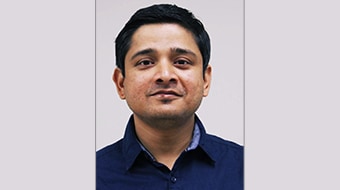New Delhi An indefinite suspension of a member of Parliament, especially from the Opposition, is a matter of “serious concern” for a constitutional court, the Supreme Court observed on Monday, adding that Parliament must have voices different from the ruling dispensation.
The court, hearing a petition filed by Aam Aadmi Party’s (AAP) Raghav Chadha challenging his indefinite suspension from the Rajya Sabha more than two months ago, remarked that ousting an Opposition MP does not only deprive the people of that constituency a representation in the House but also removes a voice distinct from the ruling party.
“He (Chadha) is a member of the Opposition and it’s important to have such voices in Parliament. We must be very careful about excluding members of the Opposition from Parliament. Exclusion of members of the Opposition from the House is a serious matter. He is representative of a voice which is different than the ruling party, and this is a serious concern for the constitutional court,” said a bench, led by Chief Justice of India (CJI) Dhananjaya Y Chandrachud.
Noting that Chadha has remained suspended for 75 days so far, the bench, which also included justices JB Pardiwala and Manoj Misra, added: “Parliament must have voices from a different spectrum.”
The 34-year-old AAP MP was suspended on August 11 during the Monsoon session of Parliament over the alleged breach of privilege. Chadha was accused of not taking consent of five Rajya Sabha MPs before including their names in a select committee for considering the Government of National Capital Territory of Delhi (Amendment) Bill 2023 that seeks to diminish the power of the elected AAP government in the Capital over services. On a complaint by the five MPs alleging breach of privilege, the same was referred to the privileges committee and Chadha was suspended till the committee submitted its final report.
Fixing the matter for a detailed hearing on November 3, the court noted that it will “set the law straight” on whether a parliamentarian can be suspended indefinitely pending a final decision of the privileges committee. The bench clarified it would not go into the issue of privilege or the proceedings pending before the parliamentary committee but would confine the ambit of its scrutiny to the continued suspension of a member on the touchstone of proportionality.
“How long can you exclude him (Chadha)? He has already been out for 75 days. The winter session is approaching. He will lose out on that as well because there is no time frame for the committee to decide… What if the committee does not decide till the term of the present House? Does it mean that his right to represent the constituency will be suspended indefinitely?” it asked attorney general (AG) R Venkataramani, who was requested by the bench on October 16 to assist the court.
While Venkataramani pointed out that Chadha’s action brought disrepute to Parliament, the bench said that any infraction must result in a proportional punishment. “Proportionality is a part of our jurisprudence now. We are all subordinates to the Constitution,” it said.
The bench also prime facie agreed with senior advocate Rakesh Dwivedi, who represented the Rajya Sabha MP from Punjab, that Rules 256 and 266 (discretionary powers) of the Rules of Procedure and Conduct of Business may not empower the Rajya Sabha chairperson to pass an order of suspension beyond the particular session during which the decision to suspend the member was made.
“An indefinite suspension of an MP like this has very serious repercussions on the right of people to be represented… proportionality also needs to have meaning. The question is – Is there a power to suspend like this? Where is the power? Rules 255 and 256 do not empower a suspension beyond that session. If this is done using inherent discretionary powers, we will have to test it on the principle of proportionality,” added the court.
To a court’s suggestion, Dwivedi said that he is willing to tender an unconditional apology to the Rajya Sabha Chairman as well as to this court for his mistake. The AG, however, pointed out that it may not be within the remit of the Speaker or Chairperson to revoke the order of suspension since the order had come following a resolution of the House.
At this, the court said that it would examine the issue from the viewpoint of proportionality and the effect of continued suspension in the given case. It asked the AG and Dwivedi to submit their written submissions by November 2 so that the matter can be finally heard on the next day.
HT reached out to Chadha, but he did not respond to request for comment.
Chadha moved the top court on October 10 and complained that due to the indefinite suspension, he was unable to take part in the various committees of which he is a member. His petition argued that once the matter stood referred to the privileges committee, suspension could not be issued and pending enquiry by the committee, the Rajya Sabha Chairman had no jurisdiction to keep an MP out of the House for an indefinite period.
The plea cited 11 similar instances in the past when members included the names in the motion of members who were unwilling but in none of those cases, a case of breach of privilege was made out. It added that the Rules of Procedure and Conduct of Business, which allows the Chairman to suspend a member “who disregards the authority of the Chair” or “abuses the rules of the council by persistently and wilfully obstructing the business”, cannot extend beyond the end of that session. Even the Chairman cannot take recourse to his additional powers under the Rules to extend the tenure of suspension, it added.



